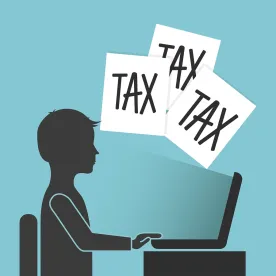Participants in the municipal bond market are breathing easier after Congress passed sweeping changes to the American tax code without provisions under an earlier House bill that would have eliminated approximately 25% of the tax-exempt bond market by taxing interest earned on all private activity bonds (including 501(c)(3) bonds, exempt facility bonds, student loan bonds and mortgage bonds).
In so doing, Congressional Republicans avoided crippling President Donald Trump's infrastructure initiative before it begins by retaining tax provisions that help public and private entities foster economic growth. Also, to the surprise of many, House and Senate Republicans agreed to drop a proposal by the House—which would have applied retroactively as of November 2, 2017—to end the use of tax-exempt bond proceeds to fund so-called "professional sports stadiums" (defined as any venue used for at least five days during any year for professional training, sports, exhibitions, games or training).
However, the GOP tax overhaul could profoundly affect the municipal bond market by eliminating tax-exempt advance refundings of governmental and 501(c)(3) debt after December 31, 2017. Although President Trump wants to sign the bill before Christmas, doing so would trigger across-the-board spending cuts under the Pay-As-You-Go Act of 2010, which might postpone enactment until January 2019. The Republican tax bill's key public finance provisions, as well as those that rattled the municipal market—but ultimately did not pass—are summarized in a supplemental table referenced below.
Highlights of the final bill include:
-
Qualified private activity bonds survive despite House GOP's threatened repeal as of December 31, 2017, of the exemption from federal income tax for all interest paid/earned on tax-exempt private activity bonds (PABs), including exempt facility bonds and qualified 501(c)(3) bonds, mortgage bonds, veterans' mortgage bonds, small issue bonds, student loan bonds, and redevelopment bonds. All PABs survive under the final bill.
-
No tax-exempt advance refundings after December 31, 2017 (including advance refundings of governmental bonds and qualified 501(c)(3) bonds). (I.R.C. § 149(d); TCJA §13,532).
-
No qualified tax credit bonds after December 31, 2017, including qualified zone academy bonds (QZABs), qualified school construction bonds (QSCBs), clean renewable energy bonds (CREBs), new clean renewable energy bonds (New CREBs), qualified forestry conservation bonds, qualified energy conservation bonds (QECBs) and Build America Bonds (although federal tax credits will remain available for holders of outstanding tax credit bonds issued before December 31, 2017). (I.R.C. §54-§54AA; TCJA § 13,404). While not tax credit bonds per se, new market tax credits set to expire with the 2019 allocation remain unchanged by the GOP tax bill.
-
Suppliers in prepaid gas deals closing after 2017 will be immediately taxed on prepayments from municipal issuers under a new rule for advance payments in Section 451. (I.R.C. § 451; TCJA § 13,221).
-
Proposal to prevent tax-exempt-financed sports facilities from use by professional sports teams for more than four days per year (so-called "professional sports stadiums") dropped.
-
Proposal to end Mortgage Credit Certificates (MCCs) dropped.
-
No special exclusion from gross income for governmental contributions (other than as a shareholder) to the capital of corporations used in the construction of certain public utilities. This provision generally applies to contributions made by governmental entities after the TCJA is enacted, except for contributions made after date of enactment by a governmental entity pursuant to a master development plan that has been approved prior to the enactment date by a governmental entity. (I.R.C. §§ 76 (new), 118(c); TCJA § 13,312).
-
Reductions in private activity bond cap under new chained CPI-U cost-of-living indexing method (as well as for the First-Time Farmer Exception to Land Use Limitations under Section 147). (I.R.C. §§ 1(f)(3), 146(d)(2)(B); TCJA § 11,002(d)).







 />i
/>i

